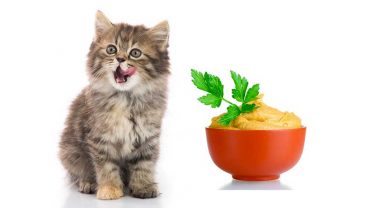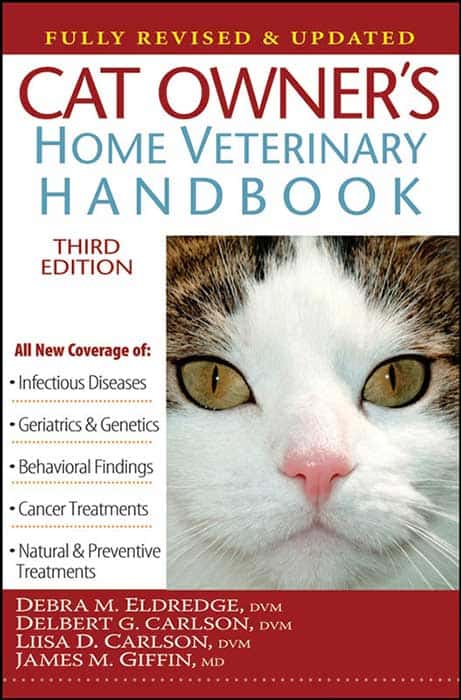It’s not unusual to come across cats meowing and begging for human foods. And neither is it unusual to come across cat owners who are ready and willing to offer some human foods to their feline friends.
But as you probably already know, not all human foods are safe and nutritionally beneficial for cats.
Take an example of the condiment mustard, and you may be asking yourself – can cats eat mustard and what could possibly happen when they do?
The word “condiment” alone is sufficient to get any loving cat owner nervous about offering mustard-containing foods to their little furballs. While the jury is still out there, it’s probably not a very good idea to offer mustard to your cat.
And that means you should also take urgent intervention measures if you suspect your furry friend has helped itself to some mustard.
Read on for more insights on how mustard interacts with a cat’s system.
Table of Contents
Possible Benefits of Mustard
Now, is it okay for cats to eat mustard? The best way to answer that question is to begin by investigating the potential health and nutritional benefits of this condiment.
The following are some of the top documented benefits of mustard.
1- Improving Cardiovascular Health
Like humans, cats also suffer from a broad spectrum of cardiovascular conditions. And the remedies experts normally suggest for managing these conditions are somewhat similar for both man and feline.
Various studies published in the Cardiovascular Drugs and Therapy suggest that mustard oil could help lower the risks of acute myocardial infarction.
In lay terms, mustard reduces the risks of developing a heart attack, which is one of the most common triggers for cardiovascular diseases.
Mustard is rich in omega-3 fatty acid, which is the very acid responsible for its ability to improve cardiovascular health.
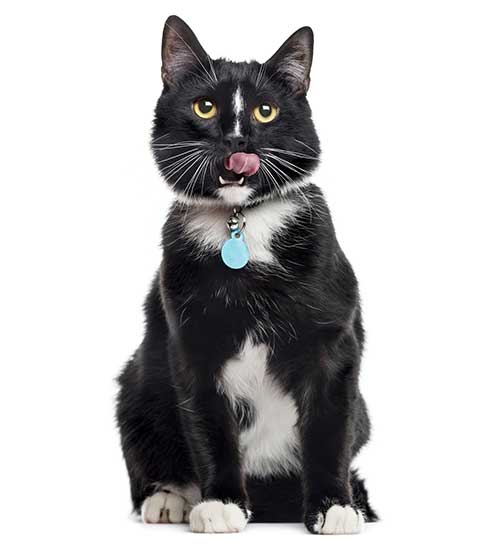
2- Fighting Uterine Cancer
Feline uterine tumors are common among middle-aged to older female cats. And plenty of uterine tumors in cats tend to be malignant, meaning they’re potentially cancerous.
Depending on what stage the tumors are diagnosed, they could spell a death sentence to your cute, little cat.
According to a research study that was published in the Human & Experimental Toxicology, mustard seeds have immense chemopreventative potential that could offer protection against cancerous.
3. Improving Bone Health
As cats grow older, they suffer bone wastage and degeneration. Apart from age-related bone wastage, cats also suffer other bone conditions that often result from bacterial infections, such as osteomyelitis.
Thankfully, mustard may help to improve the strength of your cat’s bone. Mustard seeds contain an abundance of selenium, a compound that’s known to improve bone health by making them stronger and more durable.
Stronger bones mean less injury during playtime or when fending off aggressors. Besides bone strengthening, selenium could also improve the health of your cat’s teeth, hair, and claws.
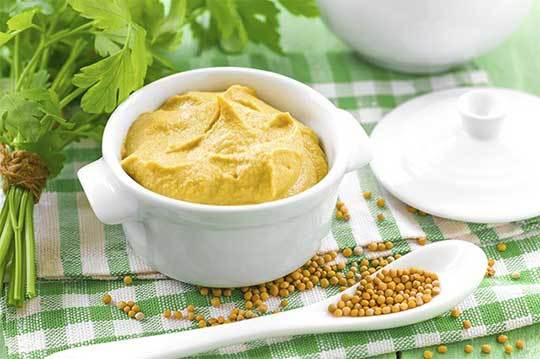
4. Instrumental in Red Blood Cell Formation
Mustard contains most of the elements that are essential in the formation of red blood cells. Examples include iron and copper.
A tablespoon of mustard boasts up to 6% of the recommended value of iron in humans, which means that much less might be just ideal for your cat. Remember that iron deficiency causes anemia, a debilitating condition that you wouldn’t wish on your cat.
5. Fighting Psoriasis
Mustard has also been shown to be effective in curing lesions and inflammations that result from psoriasis. That might come in handy for playful cats who are more prone to injuries.
Mustard has also been associated with the stimulation of enzymatic activities, which escalates the overall wound healing processes.
6. Promoting a Healthier Skin and Fur
Mustard seeds are rich in antibacterial properties which not only help to cure skin lesions, but also rejuvenate the skin and keep it moisturized.
Mustard oil is especially rich in vitamins A and E, omega-3 and omega-6 fatty acids, as well as calcium, both of which directly contribute to radiant skin and stronger fur.
7. Relieving Insomnia
Like humans, cats also suffer from sleep disorders. Certain disorders, such as insomnia, can interfere with your cat’s biological clock significantly. Mustard is high in magnesium content, a mineral that’s directly linked to better sleep quality and duration.
Besides, mustard also facilitates the regulation of metabolism, which goes a long way in relieving different kinds of sleep disorders.
Evidently, mustard comes with a host of health and dietary benefits. And from face value, there seems to be no substantial reason why you shouldn’t offer the condiment to your cat. But the question remains, is mustard harmful for cats?
The following sections will help explain why the condiment isn’t that great for cats, after all.
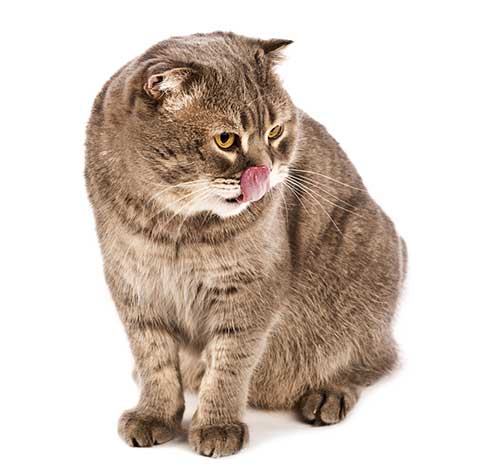
What Do Cats Eat?
It’s important to note that cats are obligate carnivores, a trait they have inherited from their wild ancestors. As obligate carnivores, cats live exclusively on animal protein.
In fact, a cat will hardly survive without animal protein. But that’s not to mean that they’ll immediately die of plant matter either.
? Indeed, you may have observed your little furball nibbling on grass. Again, this is an inherited dietary trait that enables cats to clear an upset stomach and relieve constipation.
However, you should note that a little more than a cat’s fair share of greens will inevitably wreak havoc on its digestive system. So, being a plant matter, there is very little nutritional value that your cat will derive from mustard.
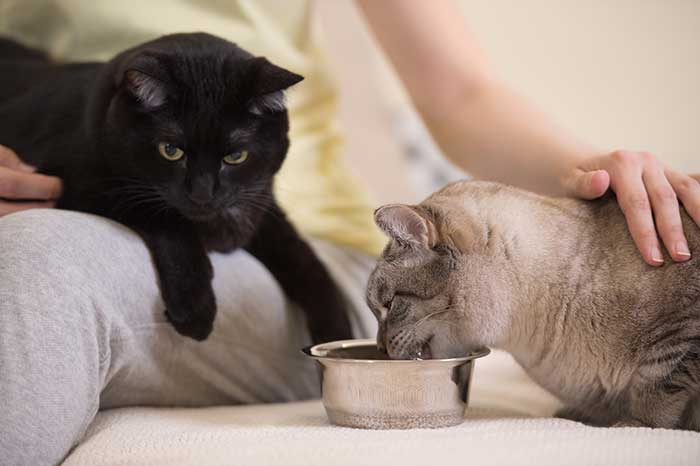
Another point to remember is that human foods are prepared in conditions that don’t make them ideal for cats at all.
? For instance, you’ll likely find mustard in foods like sandwiches and pizza. Even if the mustard itself were safe, many of the ingredients used in the preparation of such foods automatically make them a no-no for cats. Not to mention, the methods of preparation leave very little nutritional elements intact that the cat might enjoy.
Also, cats should never eat any form of hot or spicy foods. You probably already know why foods like onion and garlic are discouraged. Mustard might pretty much fall in this category.
Mustard will likely cause an upset stomach. And when that happens, you can expect a wide range of gastrointestinal symptoms, such as vomiting, diarrhea, nausea, and abdominal pains.
Lastly, while mustard boasts numerous dietary elements and vitamins, cats can manufacture a great deal of those vitamins on their own. An example includes vitamins C. Therefore, just by offering your cat a balanced diet, you would never need extra vitamins and minerals.
Unlike humans who require supplements to meet their nutritional needs, cats will do just fine by eating healthy feline balanced diets.
Are All Mustard Harmful For Cats?
Mustard comes in different forms.
The yellow type, also known as the American Yellow Mustard, is the most common type of mustard. It’s mostly made of yellow mustard seeds as well as vinegar and turmeric. Can cats eat yellow mustard?
Though it’s the mildest form of all the mustard variants, yellow mustard isn’t recommended for cats. That’s because like all other types, it may cause an upset stomach.
The second mustard variant is the Spicy Brown Mustard. It’s made of coarsely-ground brown mustard seeds, which makes it spicier and hotter than the yellow variety. Spicy Brown Mustard is considered more harmful than the American Yellow Mustard, as it features more condiments.

The Dijon Mustard is the other category of mustards. It differs from the American Yellow in that it uses white wine in the place of vinegar. But, can cats eat Dijon mustard?
The white wine used is actually worse than vinegar, which makes Dijon mustards a no-no for felines.
We also have Honey Mustard and as you may expect, this is the most appealing of all the mustard variants out there. However, is honey mustard safe for cats?
Forget its sweet and tangy taste; honey mustard is just as harmful as other forms of mustard. And since it’s likely to be more appealing to cats, you should exercise due diligence when storing any honey mustard in your house.
There are numerous other varieties of the mustard plant, you can check them out here.
Now, there’s also the question of mustard greens and you may be wondering, can cats eat mustard greens?
Essentially, mustard greens are the leaves of a mustard plant. While they pack immense nutritional elements for us, these leaves aren’t ideal for cats. Mustard greens may cause an upset stomach. Besides, the leaves could contain aerosol residues that might come with additional gastrointestinal complications for your cat.
Needless to mention, mustard plants may prove a little tough for your cat to chew.
Apart from mustard leaves and the many variants of the plant, we also have mustard seeds. Mustard seeds pack nearly the same nutritional benefits as mustard oil. However, can cats eat mustard seeds?
Aside from the possible adverse interactions with your cat’s digestive system, mustard seeds may also present a choking hazard. Remember that cats don’t chew their foods as well as humans do. They may opt to gulp down the mustard seeds and in effect, might develop constipation and an upset stomach.
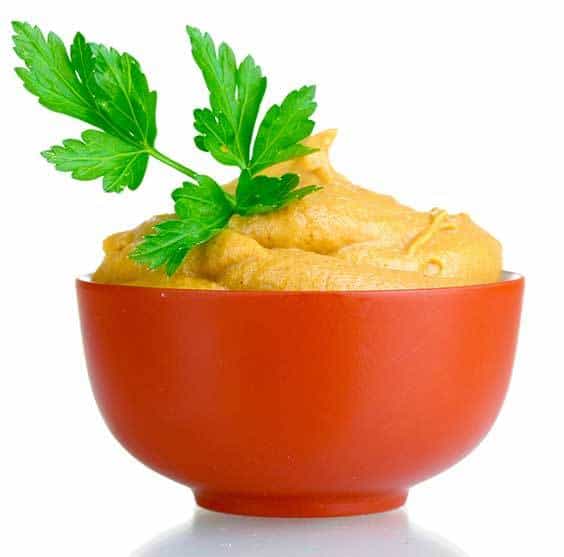
What Are the Tell-tale Signs That Your Cat Has Eaten Mustard?
As we already mentioned, the first signs you should watch out for are gastrointestinal complications as characterized by diarrhea, vomiting, etc.
The cat may also demonstrate some irritability, such as licking and pawing at their face profusely so as to get rid of the taste and smell of mustard.
If you realized that your cat ate mustard behind your back, your first line of action should be to offer the cat plenty of water.
That will help to replenish the fluids the cat loses through vomiting and diarrhea. Water will also help to reenergize the cat since it’s likely that the cat will have lost its appetite and might not readily eat any food.
If the signs don’t wear off after a couple of hours, it may be time to visit the vet for further examination.
So, Can Cats Eat Mustard?
While mustard doesn’t present the same level of toxicity to cats as other foods like onions, it’s still prudent to keep it out of your feline’s way.
Even where there are no threats of side effects, mustard doesn’t pack the nutritional elements that your feline friend might find useful.

